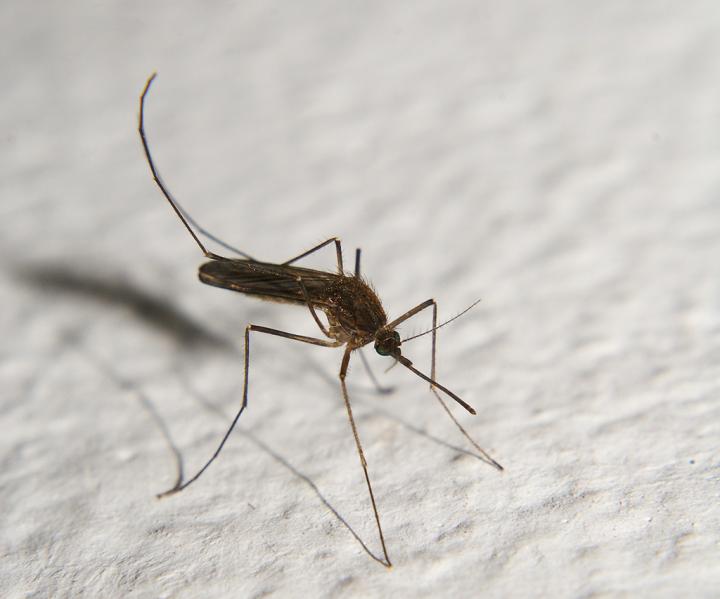Common bacteria naturally transmitted between insects found to make them less susceptible to insecticides used to control their numbers

Credit: University of Reading
A common bacterial species naturally infecting mosquitoes may actually be protecting them against specific mosquito pesticides, a study has found.
Wolbachia – a bacterium that occurs naturally and spreads between insects – has become more frequently used in recent years as a means of controlling mosquito populations.
Scientists at the University of Reading, and the INBIOTEC-CONICET and the National University of San Juan in Argentina, studied the effect of Wolbachia on a common mosquito species and found those carrying the bacteria were less susceptible to widely used pesticides.
Dr Alejandra Perotti, an Associate Professor in invertebrate biology at the University of Reading, and a co-author of the study, said: “This shows the importance of looking more closely at how bacteria in mosquitoes and pesticides interact, especially at a time when new plans are being formulated for which methods to use, where to use them and which species to target.”
Mosquitoes transmit several diseases like dengue fever, malaria, zika and yellow fever to humans through their bites, and collectively kill more than a million people worldwide every year.
In the new study, published in Scientific Reports, the researchers looked at Culex quinquefasciatus – also known as the southern house mosquito – that had been reared for several years under environmental controlled conditions at a lab in Argentina (INBIOTECT insectary).
This is one of the most widespread species in countries with hotter climates. The mosquito species transmits several diseases, a wide range of viruses such as the West Nile Virus (WNV), the San Luis Encephalitis Virus (SLEV) and the Venezuelan Equine Encephalitis Virus, and in addition a variety of parasites (filarial worms) in Central and South America, Africa and Asia.
The team found that the mosquito larvae naturally infected by an Argentinian native strain of Wolbachia were less susceptible to three bacterial pesticides (Bacillus thuringiensis israelensis, Bacillus wiedmannii biovar thuringiensis, and Lysinibacillus sphaericus), two of which are commercially available and used in many countries to control mosquito populations.
###
Media Contact
Pete Bryant
[email protected]
Related Journal Article
http://dx.




